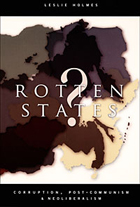The Institutional Revolution: Measurement and the Economic Emergence of the Modern World
University of Chicago Press, 2011
eISBN: 978-0-226-01476-0 | Cloth: 978-0-226-01474-6
Library of Congress Classification JN191.A554 2012
Dewey Decimal Classification 331.25
eISBN: 978-0-226-01476-0 | Cloth: 978-0-226-01474-6
Library of Congress Classification JN191.A554 2012
Dewey Decimal Classification 331.25
ABOUT THIS BOOK | AUTHOR BIOGRAPHY | REVIEWS | TOC | REQUEST ACCESSIBLE FILE
ABOUT THIS BOOK
Few events in the history of humanity rival the Industrial Revolution. Following its onset in eighteenth-century Britain, sweeping changes in agriculture, manufacturing, transportation, and technology began to gain unstoppable momentum throughout Europe, North America, and eventually much of the world—with profound effects on socioeconomic and cultural conditions.
In The Institutional Revolution, Douglas W. Allen offers a thought-provoking account of another, quieter revolution that took place at the end of the eighteenth century and allowed for the full exploitation of the many new technological innovations. Fundamental to this shift were dramatic changes in institutions, or the rules that govern society, which reflected significant improvements in the ability to measure performance—whether of government officials, laborers, or naval officers—thereby reducing the role of nature and the hazards of variance in daily affairs. Along the way, Allen provides readers with a fascinating explanation of the critical roles played by seemingly bizarre institutions, from dueling to the purchase of one’s rank in the British Army.
Engagingly written, The Institutional Revolution traces the dramatic shift from premodern institutions based on patronage, purchase, and personal ties toward modern institutions based on standardization, merit, and wage labor—a shift which was crucial to the explosive economic growth of the Industrial Revolution.
See other books on: Economic History | England | Measurement | Modern World | Stuarts, 1603-1714
See other titles from University of Chicago Press




























